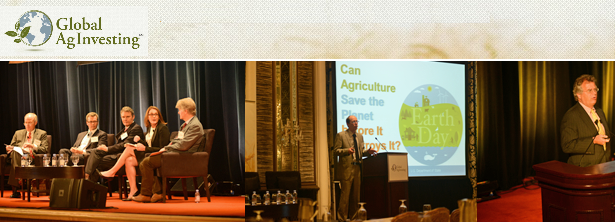
During the sixth annual Global AgInvesting Europe conference, around 400 allocators, fund managers, and industry executives come together to discuss the burgeoning asset class of agriculture and its surrounding themes.
This year’s conference will help to solidify and grow the community of thought leaders who believe in the strong fundamentals of agriculture and are committed to putting real money to work in the space.
Agenda Highlights
- 10+ hours of dedicated networking time
- 16+ hours of critical presentations and panel discussions
- Speaker-hosted roundtable discussions
- Interactive workshops on water scarcity, structuring the investment vehicle, and land tenure
- Pre-conference seminars on agriculture fundamentals and opportunities in agtech
Click here to view the full agenda.
Panel: Opportunities in African Agriculture
December 1, 2015 15:30-16:15
Moderator: James Siggs, Managing Director, MASDAR Farming
Panelists
Daniel Hulls, Chief Executive Officer, AgDevCo
Jude Uzonwanne, Principal, Bain & Company
Theo van der Veen, Director, UFF Agri Asset Management
With a sizable percentage of the globe’s reserves of potential rain-fed cropland, Africa will one day become a breadbasket for both domestic and export markets. As most of the continent has never employed modern techniques for agricultural production, processing and transportation, producers often lack basic infrastructure, crop varieties optimized for local conditions and other tools commonly available in more developed regions. However, for the handful of managers pioneering agricultural production in Africa, these challenges present opportunities.
- Where are the most attractive opportunities in Africa?
- What are the particular political challenges and how have the managers addressed them?
- How can managers assure transparency in their negotiations of large-scale land acquisitions and long-term concessions?
- How do managers’ strategies in Africa address the issues of smallholders and social responsibility?
- This event has passed.

